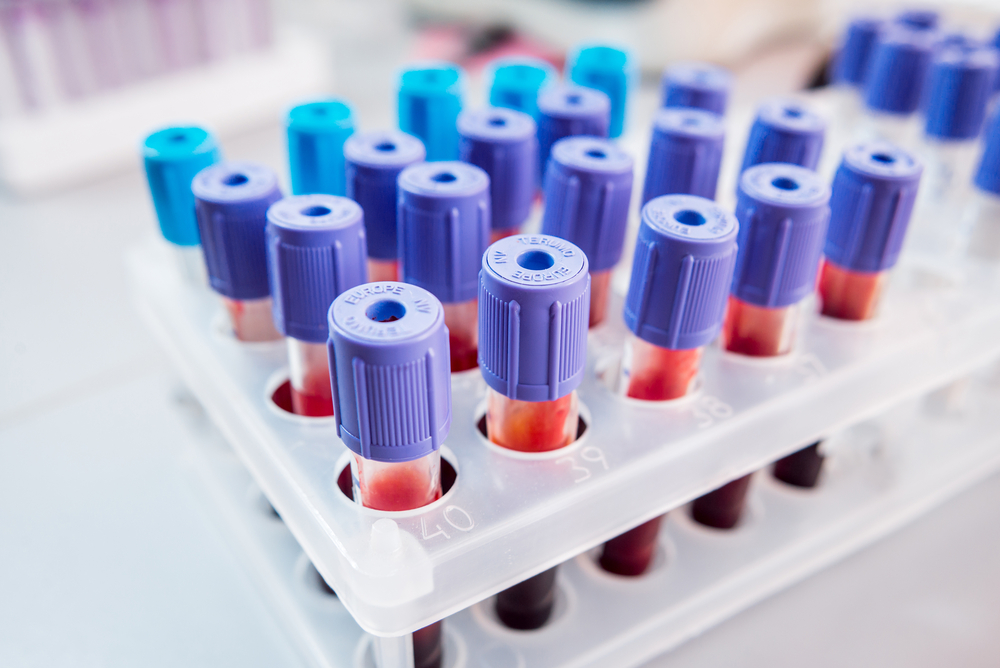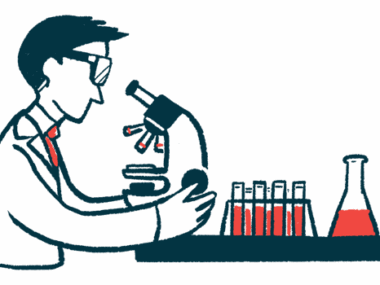Blood Levels of sCD40L May Be Biomarker for Bacterial Infection in CF Patients
Written by |

Blood levels of a protein called sCD40L may serve as a biomarker to track lung complications in patients with cystic fibrosis (CF) infected by Pseudomonas aeruginosa bacteria, according to a new study.
Results of the study were reported in the article “A High Level Of Soluble CD40L Is Associated With P. aeruginosa Infection In Patients With Cystic Fibrosis,” which appeared in the journal PLoS One.
CF is caused by mutations in the CFTR gene encoding the CFTR protein. When faulty, this protein contributes to the accumulation of mucus in several organs, thereby allowing the growth of pathogens, such as P. aeruginosa. In the lungs, excessive bacterial or fungal growth leads to lung inflammation and can trigger severe consequences.
“Regardless of whether inflammation precedes or follows infection in patients with CF, the inflammation is severe,” the researchers wrote. “Research has indicated that platelets contribute significantly to the incidence of inflammation.”
Platelets are blood components responsible for stopping bleeding by clotting blood vessel injuries. Researchers decided to investigate whether a platelet molecule called sCD40L circulating in the blood could be associated with P. aeruginosa infection in CF patients.
The study enrolled 60 CF patients ranging in age from two months to 36 years. Researchers analyzed several data from each patient, including CFTR mutations, spirometry measurements, and radiographic and tomographic scans (to assess lung damage), blood platelet number, and levels of sCD40L and inflammatory molecules, such as IL-6, TNF-α and ICAM1.
The team also assessed bacterial infection using sputum and throat swab cultures. Infection by P. aeruginosa was evaluated using antibodies specific for these bacteria (anti-PaAb).
Results indicated that in non-infected CF patients, anti-PaAb levels were around 3.46 units and sCD40L blood levels around 1008.1 pg/mL, whereas patients with intermittent infection had higher values for both parameters (5.7 units for anti-PaAb, and 2243.6 pg/mL for sCD40L). CF patients with chronic infection had even higher values of anti-PaAb levels (around 11.6 units), and blood sCD40L levels higher than in non-infected patients, but lower than in patients with intermittent infection (around 1530.9 pg/mL).
“The sCD40L levels were higher in the group of patients with intermittent infection than in those with chronic colonization,” researchers noted. “One likely explanation is that most chronically colonized patients were treated with inhaled tobramycin in ON-OFF cycles, which can reduce inflammation and sCD40L levels.”
“[S]erially measuring the serum level of sCD40L in CF patients may be useful in the follow-up of patients and may be helpful in making treatment decisions; the persistence of high levels of sCD40L could reflect a lack of response or resistance to treatment and the need to change or intensify it,” the researchers wrote.
“These findings suggest that there is an association between sCD40L levels and P. aeruginosa infection in patients with CF,” they added. “[sCD40L] appears to reflect infection status with this bacterium, in addition to providing an additional tool for monitoring the evolution of lung deterioration.”






